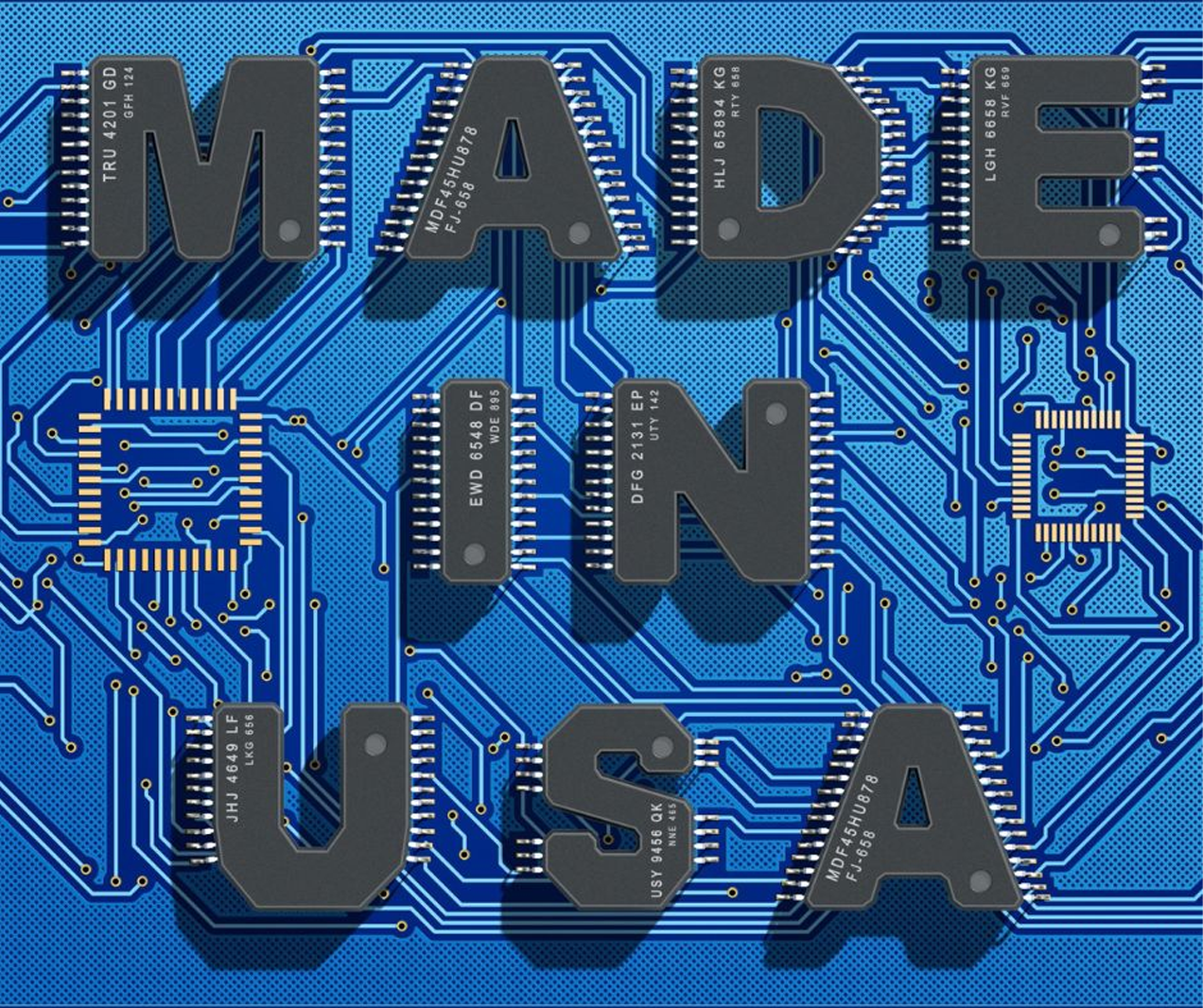 |
Dear IPC Members:
On the front burner in our D.C. office this week, IPC is engaging in the policy debate over bolstering U.S. technological capabilities and the broader electronics industry supply chain.
Check out this brief video interview where I discussed how two pieces of legislation currently in the U.S. Congress can help fix America’s electronics manufacturing ecosystem. Let us know what you think about these issues, and take action now to help spur their passage. |
Meanwhile, on the environment and health front, we are engaged in a host of calls-for-input concerning chemical regulations in the European Union, including a recent review of the RoHS Directive.
Read on, and then please reach out if you have any input or questions on what government should be doing to support the industry’s long-term growth and evolution.
All the best,
Chris Mitchell
Vice President, Global Government Relations
The Headlines at a Glance:
TOP NEWS OF THE WEEK
- The U.S. Economy Needs the Bipartisan Innovation Act and the PCB Act
- IPC Shares Industry Concerns in General Review of RoHS Directive
QUOTE OF THE WEEK
- IPC’s Chris Mitchell Comments on Need for USG Support of Electronics
ENVIRONMENT AND HEALTH
- EU Commission Opens Talks on New Rules for Sustainable Products
- Canada Proposes Limits on Flame Retardants, Other EEE Substances
- China Cancels Imported Coatings Requirement
EUROPEAN UNION
- EU Policymakers Assess Chips Act and Industrial Policy
HELP US SPREAD THE WORD ON SOCIAL MEDIA
KEEP IN TOUCH WITH US
TOP NEWS OF THE WEEK
The U.S. Economy Needs the Bipartisan Innovation Act and the PCB Act: The U.S. Congress is currently considering the Bipartisan Innovation Act, which would provide funds for semiconductor chips manufacturing and other advanced technology priorities. In a new IPC video interview, Vice President of Global Government Relations Chris Mitchell details why the U.S. government must take a holistic approach to rebuild the domestic electronics manufacturing ecosystem. He also suggests ways industry members and policymakers can take immediate action on this issue. Please contact IPC’s Ken Schramko if you’d like to add your voice to our advocacy efforts.
IPC Shares Industry Concerns in General Review of RoHS Directive: IPC recently submitted comments to the European Commission’s public consultation on the Restriction of Hazardous Substances (RoHS) Directive, which included evaluation of the criteria and timelines for exemptions. IPC’s response indicated support for a shift from RoHS as a directive to a regulation; a flexible exemptions process; support for “one substance, one assessment;” and the continued use of sound science and transparency. Please let us know if you have any questions about this consultation. IPC Contact: Kelly Scanlon.
QUOTE OF THE WEEK
 |
“This is an industry that learns by doing. When we are not producing here [United States] the most sophisticated electronics, we are losing the opportunity to build our craft and our capabilities.”
– IPC Vice President of Global Government Relations Chris Mitchell explained in a recent interview why electronics manufacturers support the U.S. Bipartisan Innovation Act, calling for $52 billion to boost semiconductor chip manufacturing and R&D for other electronics-related technologies.
|
ENVIRONMENT & HEALTH
 |
EU Commission Opens Talks on New Rules for Sustainable Products: The European Commission has opened a public consultation on a regulation that would repeal the existing Ecodesign Directive and establish a new framework for setting ecodesign requirements for sustainable products. The proposed regulation notably includes requirements for identifying substances of concern across a product’s life cycle and other information requirements, including a digital product passport. The consultation is open through June 22. IPC welcomes your feedback on the proposed regulation. IPC Contact: Kelly Scanlon.
Canada Proposes New Limits on Flame Retardants, Other EEE Substances: Canada recently proposed a new regulation to prohibit the manufacture, use, sale, and import of two additive flame retardants used in a wide variety of electronic and electrical equipment (EEEs), including wire and cable jacketing. The regulation would also implement new restrictions on perfluorooctanoic acid (PFOA) and its related compounds. For more information, please read the regulatory impact analysis statement, and let us know if you have any questions. IPC Contact: Kelly Scanlon.
China Cancels Imported Coatings Requirement: China recently moved to terminate a measure that would require notification and testing of imported coatings two months prior to importation. However, this change will not affect supervision and testing of the products by China customs, and businesses should ensure coatings follow relevant concentration standards of hazardous chemical substances. Let us know if you have any questions. IPC Contact: Kelly Scanlon.
EUROPEAN UNION
EU Policymakers Assess Chips Act and Industrial Policy: EU policymakers met this week to discuss progress on the EU Chips Act and the EU’s industrial policy, which aims to diversify Europe’s supply chains and improve supply chain security. Some policymakers expressed concern that the existing instruments and funding should be used “as effectively as possible to develop the semiconductor sector in Europe.” IPC is monitoring these discussions and looks forward to working with European institutions and EU Member States to implement the Chips Act and to augment it with support for the industries upon which semiconductor manufacturers rely. IPC Contact: Alison James.
HELP US SPREAD THE WORD ON SOCIAL MEDIA
 |
|
 |
Can we bring back the U.S. PCB sector? IPC is leading the charge and rallying support in the electronics manufacturing industry for the bipartisan Supporting American Printed Circuit Boards Act of 2022, a proposal to invest in the domestic electronics supply chain by incentivizing purchases of domestically produced PCBs and investments in factories, equipment, workforce training, and R&D. This IPC blog explains how you can help us find Congressional cosponsors for this bill. |
After more than two decades of outsourcing, the United States can design cutting-edge electronics but cannot manufacture them. ICYMI, the IPC study on the current state of advanced packaging in the U.S. semiconductor value chain found that urgent action is required to strengthen the domestic packaging ecosystem to meet increased production of semiconductor chips. |
KEEP IN TOUCH WITH US
Meet the IPC GR Team: Whether it’s engaging with policymakers in Washington, D.C., in the European Union or in China, the IPC Government Relations (GR) Team proactively seeks opportunities to educate, inform and influence policymakers on policies that spur innovation, growth and competition, while protecting human health and the environment. But our success depends on your support and engagement. Learn more and get involved in IPC advocacy today! IPC Contact: Chris Mitchell.
Subscribe to IPC Global Advocacy Report: If you’re a member of IPC, manage your e-mail preferences and opt in to receive “Advocacy” updates. If you are not an IPC member — or you’re not sure — please send a note to friends@ipc.org, and our staff will add you to the list.
Follow us on Twitter and LinkedIn.
Contact one of us if you have any questions or insights to contribute.
See prior editions of Global Advocacy Report.
Explore our IPC Government Relations information online.
|
